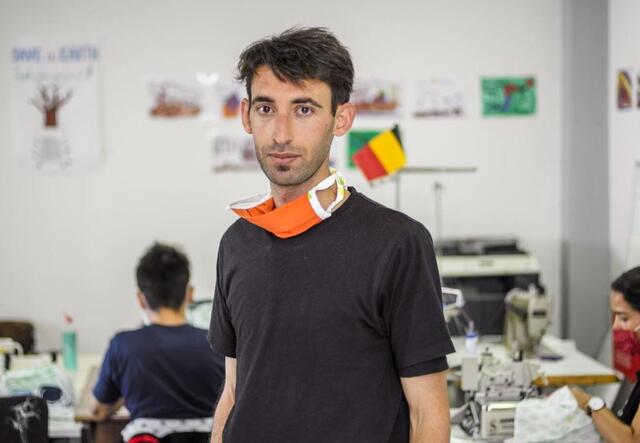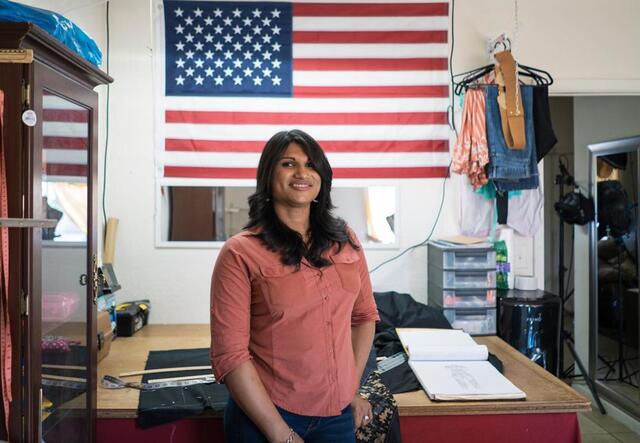Meet the refugees keeping people safe during the COVID-19 pandemic
When you’ve been without a safe place to call home, you work to give others safety.
When you’ve been without a safe place to call home, you work to give others safety.
Since the coronavirus pandemic began, refugees who were forced to seek protection from war and persecution have stepped up to protect others. In the countries they now call home, they have volunteered to make masks, sew scrubs and support women who face an increased risk of violence as a result of this crisis. Because when you’ve been without a safe place to call home, you work to give others safety.
Meet some of the refugees helping to keep their communities safe during the coronavirus.
Refugee. Mask Maker. Protector.

In 2015, Ammar’s small town in Syria was overrun by ISIS. After initially making his way to Turkey, where he worked as a chef, Ammar crossed the Aegean Sea to Greece. He spent 10 months living in a camp on Chios island before moving to Athens, where he now volunteers to keep people safe and fed during the pandemic.
“I learned to cook in Istanbul; now I’m cooking 2,000 meals for vulnerable people who can’t afford to eat,” he says. “Daily, we’re producing masks and delivering them—some to hospitals, others to the refugee camps, and also to the community in Athens.
“My response to the pandemic was a normal human response, to help my community through this crisis. I felt the unity of the world at war against this pandemic and I wanted to be a part of that. I found an organization making masks and another one cooking for the homeless. It’s been an honor to support society at this time.”
“This World Refugee Day, I want people to know that refugees are useful people. They are not a threat. The only difference between refugees and other people is that we had to leave our home countries.”
Asylum Seeker. Mask Maker. Trailblazer.

As a transgender woman in Honduras, Lincy Sopall faced abuse, violence and persecution. After a dangerous journey through Mexico and several months in U.S. immigration detention, she was granted asylum in 2018 and now lives in Phoenix, Arizona in the United States.
Before the coronavirus, Lincy was growing her fashion business—fulfilling a dream that dates back to her first clothing designs when she was just 9 years old. While the pandemic has made it difficult to reach customers, Lincy has improvised and pivoted to making the masks her friends and neighbours need to stay safe.
“When people couldn’t find masks, I started to make a product that could help protect everyone,” she says. “Because people have to go out to do daily errands, protection is necessary.
“I know what we’re going through right now hasn’t been like any other illnesses. The most important thing is knowing that … we can keep on fighting. When you feel like you’re at the edge, you can share your own experiences with others. Then people can say, ‘If she can, I can.’
"Refugees and asylum seekers are a big group of people with dreams and hopes and one goal: we come with the goal of helping the country that opens its doors to us and our families."
“My husband’s always telling me to rest. I tell him, helping people who need me is how I get my rest. How can I not help those who need me?”